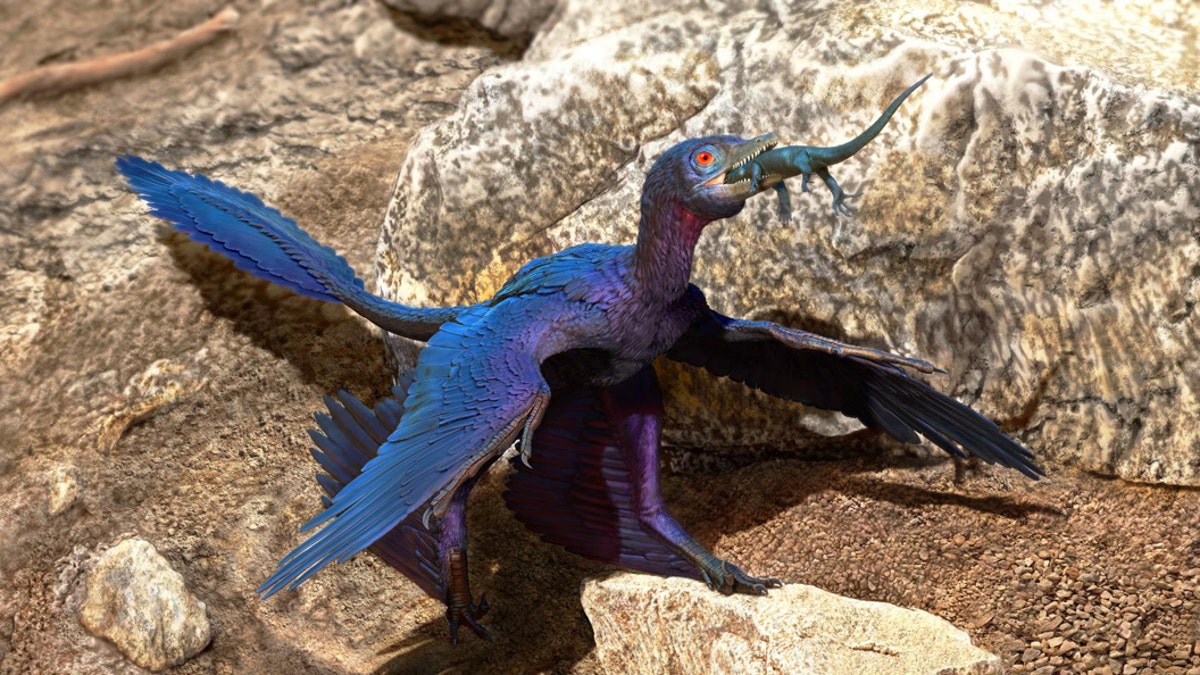Fox News Flash top headlines for July 11
Fox News Flash top headlines for July 11 are here. Check out what's clicking on Foxnews.com
Researchers have found the fossilized remains of a new species of lizard inside the stomach of a small flying dinosaur known as a microraptor.
Known as Indrasaurus wangi (after an ancient Hindu legend), the lizard was found almost entirely complete, SWNS reports. The lizard was swallowed whole, head first, by the microraptor, a crucial clue that provides new information into the eating habit of the winged dinosaur.
"The new lizard had teeth unlike any other previously known from the Jehol Biota, thus expanding the diversity of this clade and possibly suggesting a unique diet for this new species," according to the statement announcing the find.

Illustration of the lizard-swallowing Microraptor. (Credit: DOYLE TRANKINA)
FOSSIL OF 'REAL-LIFE LOCH NESS MONSTER' FOUND IN ANTARCTICA WAS THE BIGGEST SEA DINOSAUR EVER
"The lizard is largely complete and articulated, confirming the current perception of Microraptor as an agile opportunistic predator that, like extant reptiles, including raptorial birds, ingested small prey whole and head first," the study's abstract reads.
Led by professor Jingmai O'Connor from the Institute of Vertebrate Paleontology and Paleoanthropology of the Chinese Academy of Sciences, the researchers found that Indrasaurus wangi "had teeth unlike any other previously known from the Jehol Biota [in northeastern China], thus expanding the diversity of this clade and possibly suggesting a unique diet for this new species."
This is the fourth time that preserved stomach contents have been found inside a microraptor — which means "tiny plunderer" or "small thief" — suggesting "that it was an opportunistic predator" and that it fed in a manner similar to carnivorous birds and lizards alive today.
Microraptors, which had long feathers on all four limbs, lived between 125 and 122 million years ago, according to the Natural History Museum. It feasted on a diet of other animals and insects and was approximately 2.5 feet in length and weighed 1 kilogram. The museum added that it "may have been capable of guided flight."
The findings were published in Current Biology.









































